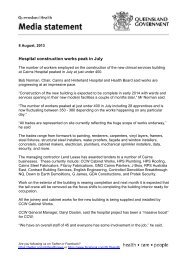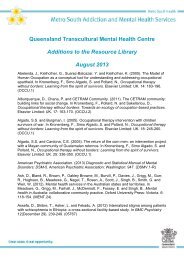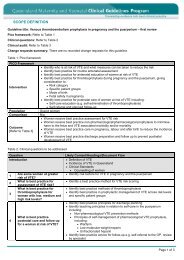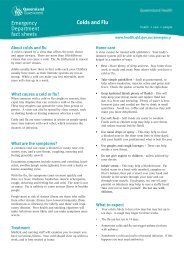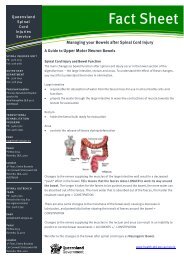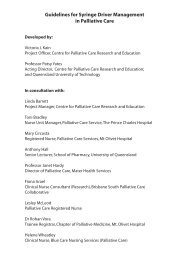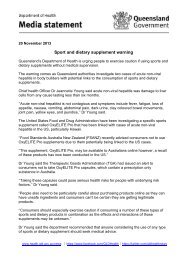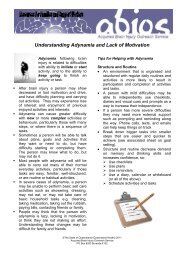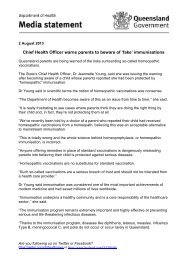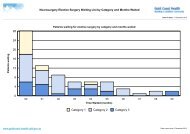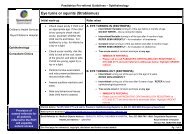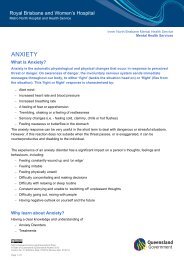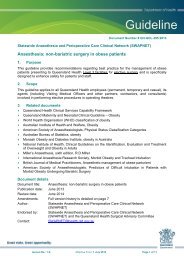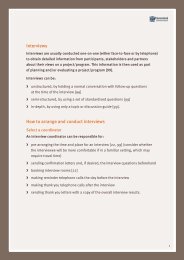Paediatrics - Queensland Health - Queensland Government
Paediatrics - Queensland Health - Queensland Government
Paediatrics - Queensland Health - Queensland Government
Create successful ePaper yourself
Turn your PDF publications into a flip-book with our unique Google optimized e-Paper software.
Gastrointestinal problems<br />
Intestinal worms<br />
Recommend<br />
Use only pyrantel (Combantrin®) in children under 6 months and in pregnant women<br />
[7]<br />
Perform de-worming in three situations:<br />
-- as part of a community eradication program<br />
-- symptomatic children<br />
-- on the basis of faeces specimen result, sent as part of investigation for anaemia<br />
or weight loss / failure to thrive<br />
Related topics<br />
Anaemia - child Failure to thrive<br />
1. May present with<br />
• Perianal / perineal itch - pinworm (thread worm), small threadlike worm may be<br />
seen (doesn’t cause diarrhoea or failure to thrive)<br />
• Anaemia - hookworm<br />
• Acute diarrhoea - strongyloides<br />
• Failure to thrive - strongyloides can contribute<br />
2. Immediate management Not applicable<br />
3. Clinical assessment<br />
• Obtain a complete patient history:<br />
-- -past episodes<br />
-- -previous weights<br />
-- -length of time signs and symptoms have been present<br />
-- -do any other members of the family or close contact have signs or symptoms?<br />
-- -is the child on medication?<br />
-- -have they been treated for worms? If so when and with what?<br />
• Perform standard clinical observations +<br />
- - weigh - use naked weight in young children and record against most recent<br />
recorded weight<br />
- - check Hb on haemoglobinometer (HemoCue®)<br />
- - collect a faeces specimen for MC/S and OCP (ova, cysts and parasites). This<br />
will be repeated as part of follow up<br />
• Perform physical examination:<br />
-- inspect the abdomen for signs of mobility<br />
-- palpate the abdomen for tenderness or guarding<br />
-- inspect the perianal / perineal area for signs of irritation (if indicated)<br />
4. Management<br />
• Consult MO if abdominal pain present See Abdominal pain<br />
Primary Clinical Care Manual 2011 Controlled copy V 1.0 613



